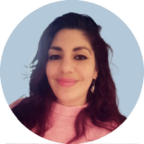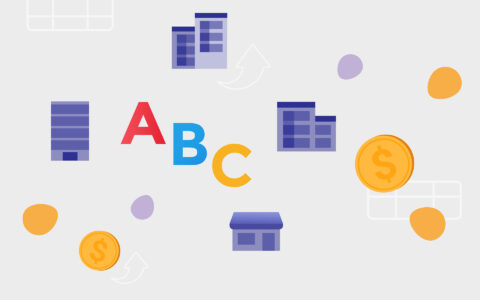Interview: Carrying the Torch of a Century-Old Pharmacy into the Digital Age
New age, new challenges. Keeping a century-old business alive, and what’s more, making it flourish, is a tough nut to crack. But it’s a feather in your cap once you do it. Dan McKallagat knows this very well. And in this interview, he shares all the secrets behind how to stay in the game in a very competitive business environment.

Dan McKallagat, owner and president of US-based Letourneau’s Compounding Pharmacy, had never imagined he would one day carry the generational torch of his family’s pharmacy business.
But after nearly 100 years from opening the business, his time has come.
It’s hard for a family business to survive two generations. So, to successfully take it into an era of technology and drugstore chain giants, it's necessary to do serious re-strategizing.
Dan took over the pharmacy in 2022 from his father Shawn McKallagat.
His family never compromised the human element. Quite the opposite. His father carefully pivoted with a renewed focus on the niche service of pharmaceutical compounding. And after integrating multiple technologies, the business has been able to not only survive but thrive.
From his office in Andover (Massachusetts), Dan opened up about the pros and cons of running an independent pharmacy. He also shares the recipe for how his business has managed to stay relevant almost a century after its establishment.
Letourneau’s Compounding Pharmacy has been around for almost 100 years. What is the secret of keeping it alive for so long?
We've been a family business since 1926.
Originally, the company started as a very typical corner drugstore. Back then, independent pharmacies were much more integrated into the community than they are now. They were seen as kind of a destination where families would go for information and consultation. There was this social element to the way they were designed.
A lot has changed since then. But what remains true in our company is that all the previous owners, of which my father is the only one whom I knew or ever had the opportunity to meet, have had a very entrepreneurial spirit. And that is not typical for pharmacy owners.
Often, the owners are excellent pharmacists, but they don't have the businessman skills.
One of the reasons we're still here after almost 100 years is that the owners haven't been apprehensive about changing as the world evolved.
Independent pharmacies are like any other small businesses - those who aren't willing to work aren't going to survive.
So, I think that kind of legacy of willingness to not remain stagnant is really why we're still in business today.
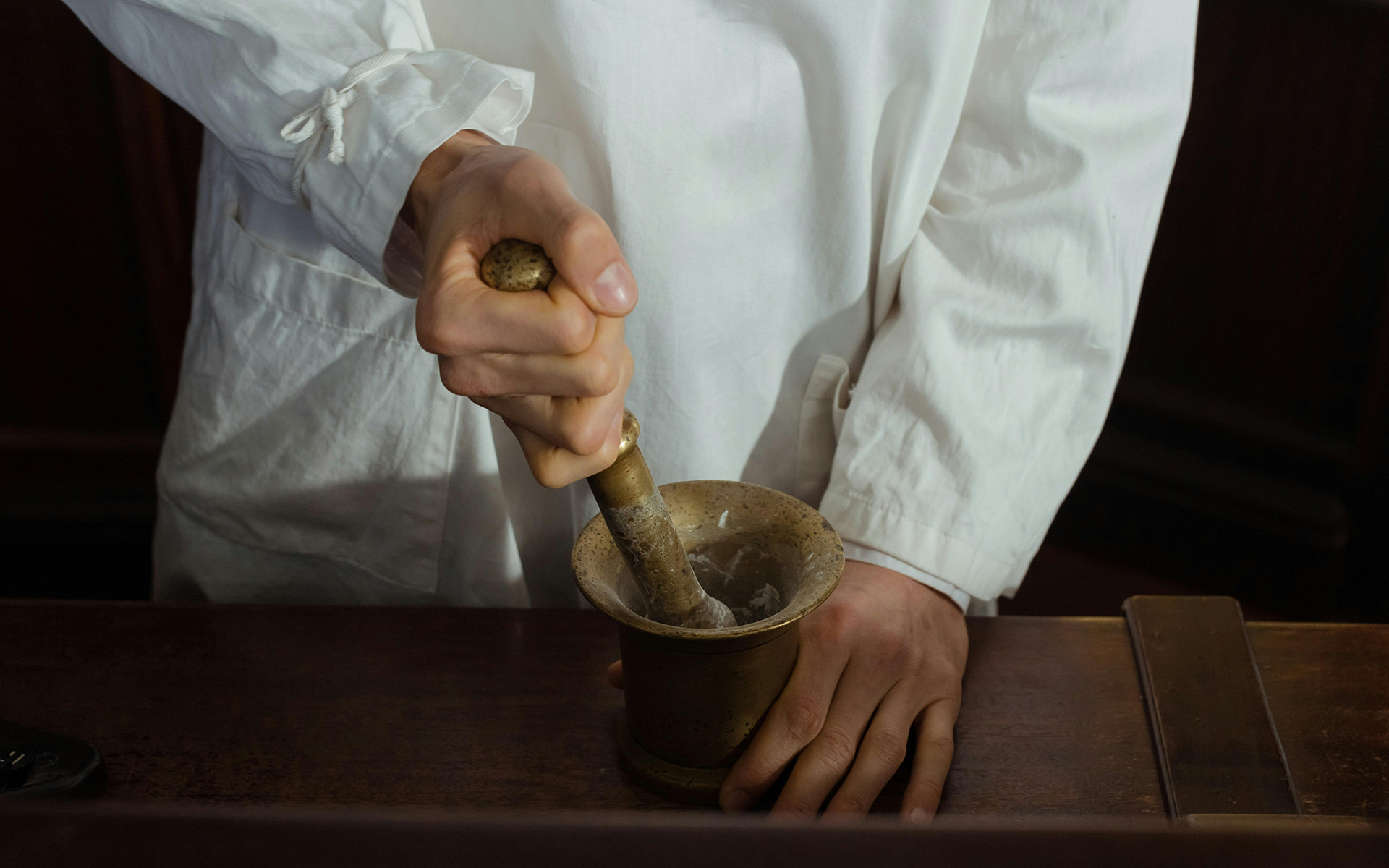
In what ways has your pharmacy evolved? How have you been keeping up with the modern age?
As far as the business itself, there have been several critical changes that have occurred in the last 25 years.
One of the biggest was the introduction of durable medical equipment, which is part of all different mobility aids, wound care items, as well as compression therapy, lift chairs, wheelchairs, and walkers.
We had to dedicate this to a separate category on our website.
It was my father who realized that big pharmacy chains like CVS and Walgreens were taking over the industry. To try to compete with them in those front-store categories of greeting cards, seasonal giftware, and typical kinds of knickknacks that you would often find at a corner drugstore, was just not going to remain viable.
We've found out it's impossible to compete with them, whether it's in terms of price, availability, or hours.
So, changing that model of the convenience store element and replacing it with a special category that chain pharmacies cannot replicate was probably the single most important step in our company's development.
More recently, on the pharmacy side of things, we sold all of our traditional prescription business to CVS. And we started offering compounding services only.
So again, diving deeper into that niche of specialty service that the chain pharmacies aren't interested in pursuing because it is perceived as too technical, allowed us to have a competitive advantage over the big fish.
Another advantage of compounding services is that insurance companies aren't as involved as they would be normally. They don't dictate the pricing the same way that they do for traditional medications.
One of the challenges a lot of independent pharmacies face is that they're making so little on the prescription drugs they're dispensing, that it becomes difficult to meet all the other expenses they have in running the business. So, rather than fighting some of those battles that we felt weren’t to our advantage, we just pivoted, sidestepped, and found a better lane for ourselves.
A lot of the compounds that we make are just cash prescriptions the insurance companies don't pay. That allows us to control the margins. Also, we’re able to better command our revenue and expenses as opposed to constantly battling the insurance companies to try to make what we consider to be a fair price.
Battling insurance companies takes a lot of time, energy, and effort.
Are your customers end users? Or do you also sell to organizations and hospitals?
We serve mostly patients and their families directly.
But we interact with other healthcare professionals regularly as well whether it’s doctor's offices or assisted living facilities. Or rehab therapy facilities. Those types of environments are very important to the management of our referral sources and the ecosystem we operate with.
One of the areas that we developed fairly aggressively over the last couple of years is vaccine clinics.
We reach out to senior centers or assisted living facilities and coordinate vaccine clinics whether it's for a town, where they'll promote it to all of their residents. Or for some of the facilities, where they'll circulate signup sheets.
That's probably the most direct way in which we service other companies as opposed to just the end users – families and patients.
Have you ever moved the pharmacy from one city to another? Or can the customers find you still at the same address?
We had one location move.
The pharmacy was originally founded in Lawrence, Massachusetts, and in 2000, we moved to our current address in Andover.
That was around the same time my father adjusted his focus to include medical equipment products.
Our current location has better accessibility for parking. And more front-store retail space. So, it was an effort to complement our shift.
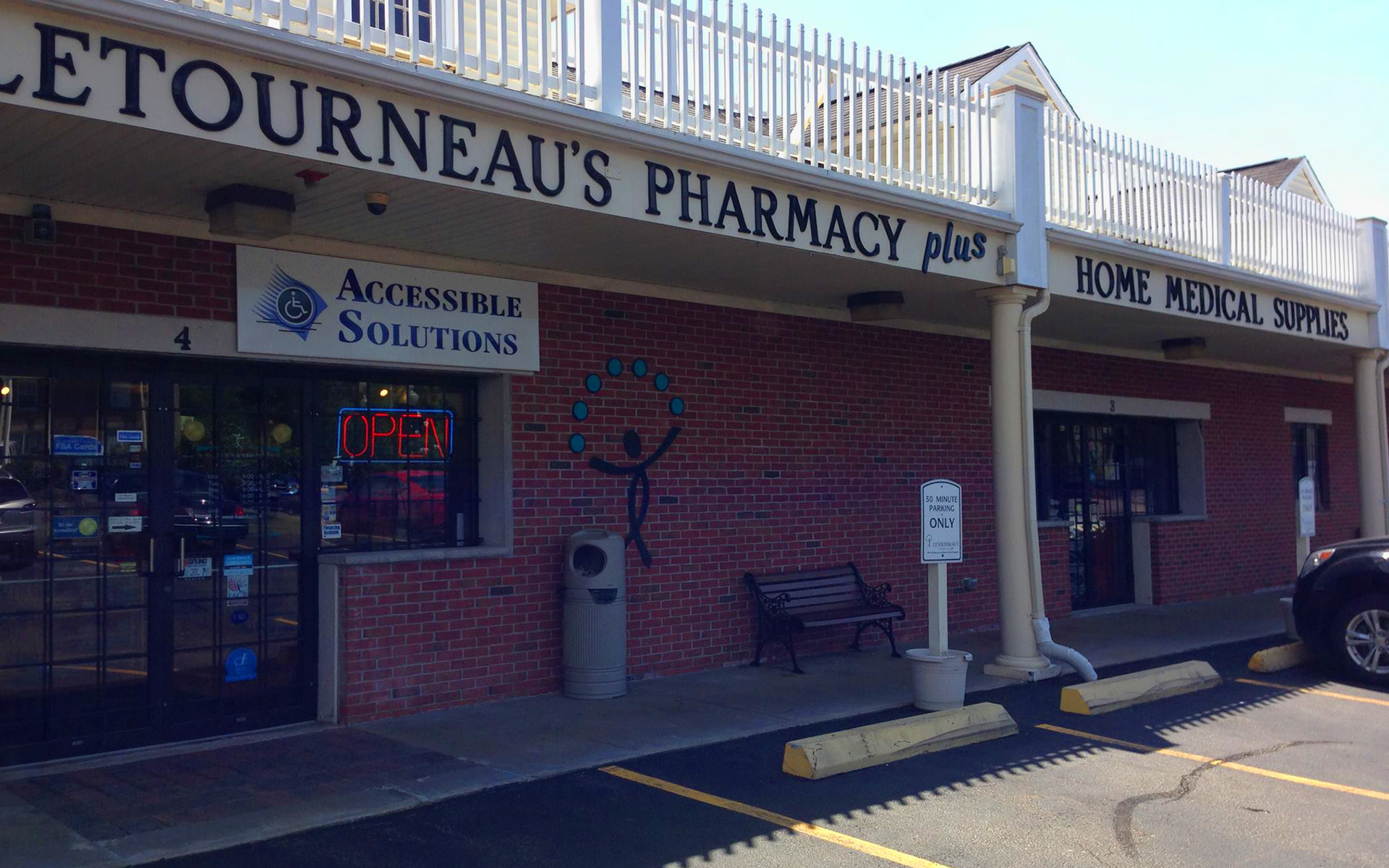
Are there other family members working with you? And what challenges or advantages does this bring to the business?
Right now, the only family member I work with is my aunt Pam Daggett. She works in our billing department.
But a handful of my cousins have come to work with us over the years. And for various circumstances have moved on to other things. Or started their families and are now taking care of the little ones.
Having family members involved certainly comes with its challenges.
The dynamic has to be right; you don’t want your family relationships to suffer because you try to include workplace dynamics as well.
I have two older siblings, who both came to work with my parents after graduating from college. Simply because at that time my mom was in business as well. But neither of them wanted to stay.
My dad and I have always navigated things really well. With my aunt Pam now, it's very similar. I think one of the advantages of working with family members is that you know each other far better than you ever could get to know anyone else through an interview.
I like working with family members because they care equally about the outcome. And are driven towards success the same way I am.
Fortunately for us, there's never been an incident that would create division or issues in the family.
We don't expect everyone to make this their lifelong journey; you just always wish the best for them. And it doesn't matter whether they are a family member or not.
What aspect of your work gives you the greatest satisfaction and keeps you going every day?
The most exciting part for me is the autonomy we have.
When I speak to a lot of friends of mine who may be a part of much larger organizations, they tell me that it's hard for them to decipher what impact they're having within the company and how meaningful the work is to them.
For us, because we're a small business, we really get to experience the fruits of our labor. And we understand the results of our efforts.
I'm incredibly grateful for this opportunity. Even though there are dozens of challenges, there's no need to climb the corporate ladder here.
We are the ones who decide the direction. And for me, that's very energizing. I'm glad I'm not a part of a large corporation with bureaucracy and red tape that restricts action. Growing up, I didn't really anticipate that I would be a part of leading or carrying the torch of this company.
What I've realized is that not that I necessarily had an existing passion for healthcare per se, but the entrepreneurial elements, too. Whether it’s healthcare, automotive, or construction, the underlying characteristics, I’m rejuvenated by every day. And I'm very excited to have the opportunity to see what we can accomplish.
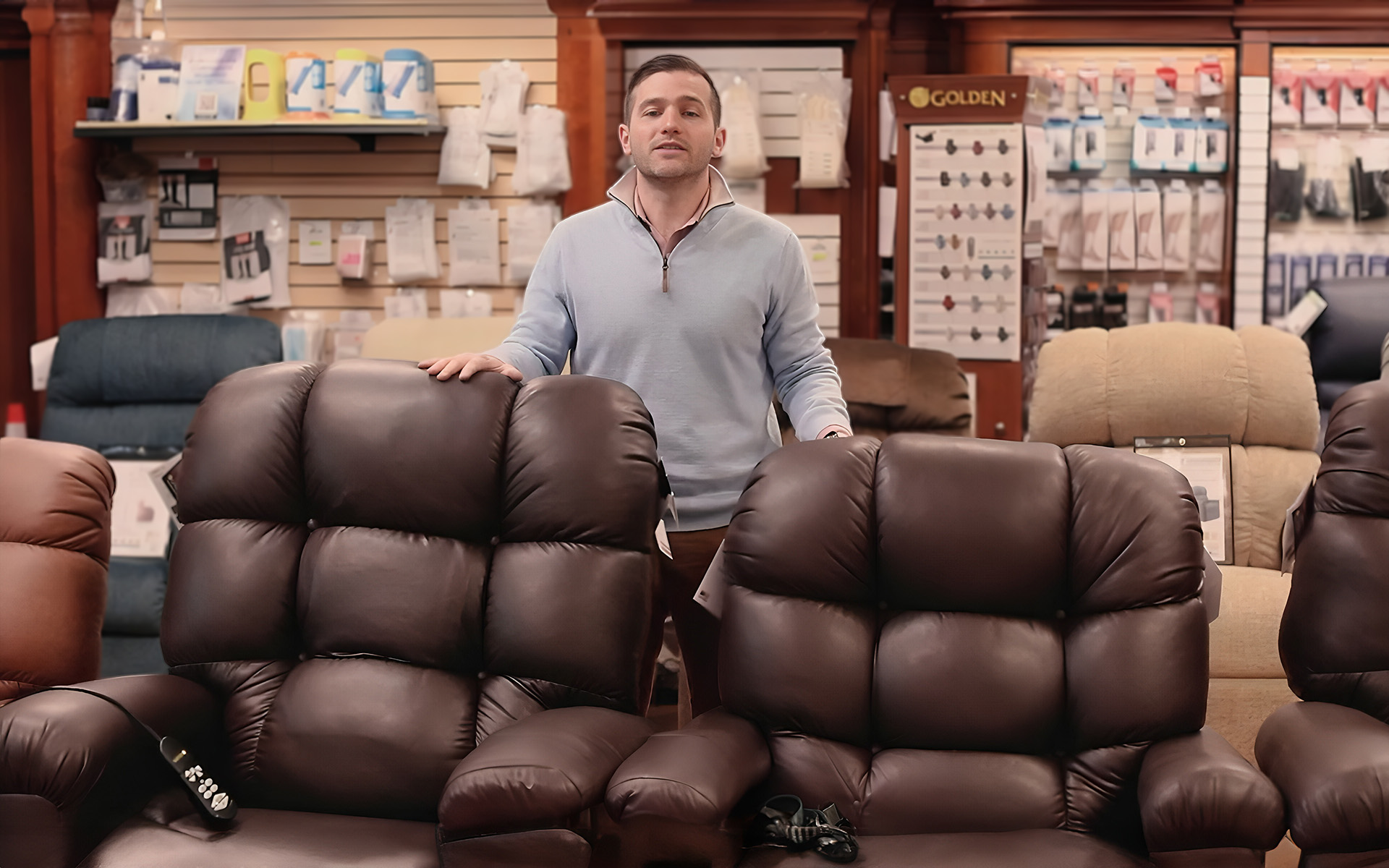
Have you always worked with your father at the pharmacy? Or how did you step into the business world?
I started here right away.
After my graduation in 2009, a friend and I came back to town. We got an apartment together and started working here.
My first jobs were deliveries and cleaning bathrooms. Very entry-level work that was critical to the trajectory of where I am today.
When I talk with my staff members who are responsible for similar tasks, I can fully understand their struggles.
I think that was definitely the right place for me to start. As I gained experience and got greater responsibility, I had that firsthand knowledge of doing whatever it takes to get to the next level.
Didn't you have any special privileges or shortcuts?
No, I didn't skip any step in the process of getting to the place where I am now. And I'm happy about that.
How has technology transformed your day-to-day operations and the way you deliver your services?
Technology has become a kind of passion of mine. And surely it has a huge impact on our business.
I'm not a particularly technical person in the sense of understanding how it all works beneath the surface. But I'm able to find out the ways how to integrate systems with one another.
I enjoy exploring new platforms and capabilities. I love searching for ways to leverage all of these new tools to achieve better outcomes.
For us, the pandemic definitely jumpstarted a lot of exploration. It forced us to modify our approach towards different things that were no longer possible. For a certain period of time, we shifted to a closed-door pharmacy, reduced our staffing, and sort of consolidated a lot of what we were doing when the pandemic hit.
For example, it forced us to start using tools like a texting platform. Thanks to it we can communicate with our customers – for refills, time of arrival, asking for reviews, etc.
I'm not a pharmacist. And I think thanks to that I have the exceptional opportunity to approach the business a little differently than the former owners did.
I'm very focused on designing systems that don't require my personal involvement, presence or perspective. It's possible to come up with a lot of different ways to accomplish the work efficiently and consistently. And to also create an opportunity to grow.
The systems we've integrated enable us to scale.
eWay-CRM has been a complete game changer for us as far as our data management is concerned.
I’m fascinated by the design of the tool. It's a blank canvas that gives you so much freedom. There are so few limitations to what can be designed. I'd say that it's just limited by your creativity and effort.
eWay-CRM has completely revolutionized the way we manage our company both internally from an infrastructure organizational side, but also from a customer service standpoint.
We are way more effective now with CRM than we've ever been before.
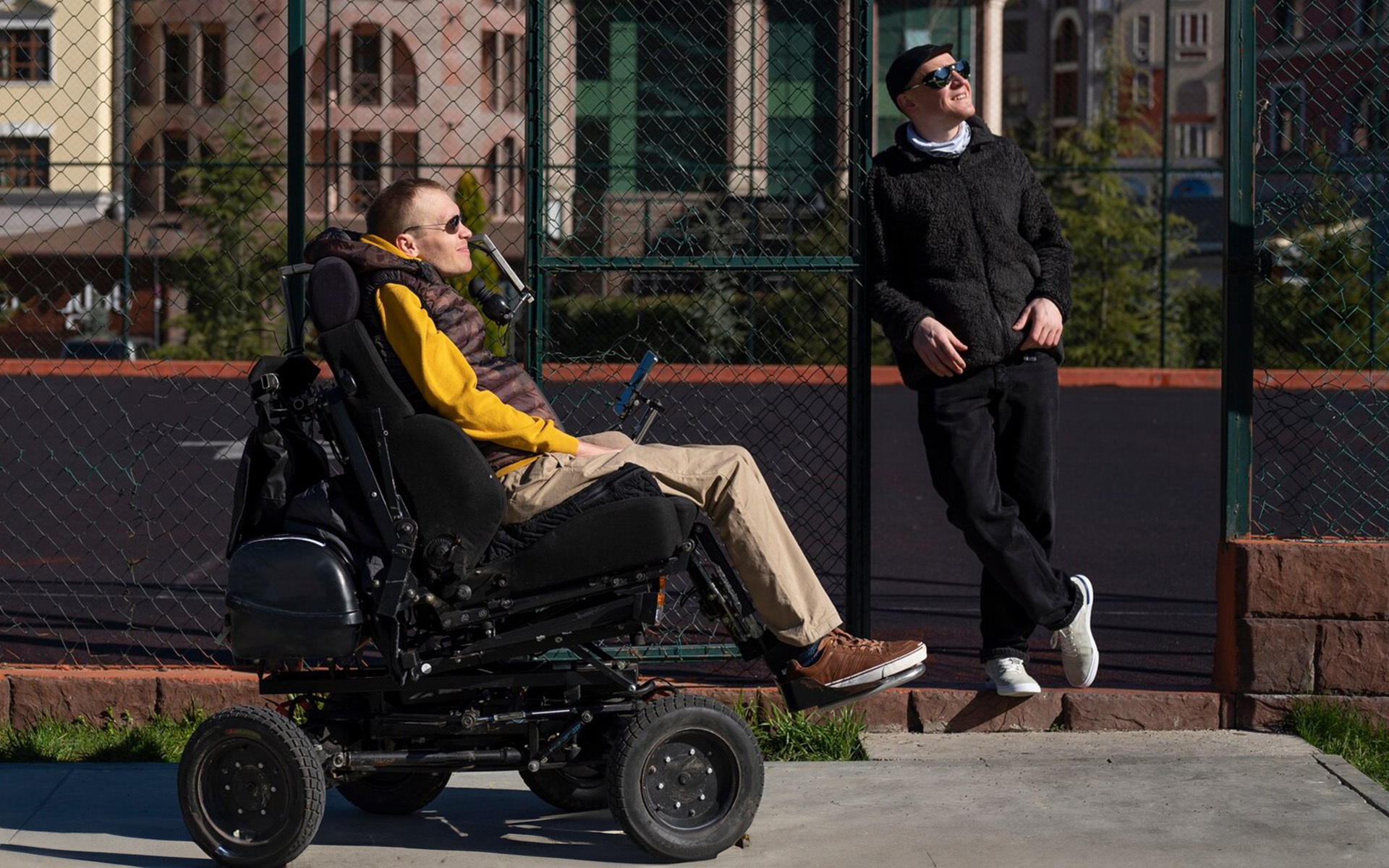
Have you reached the point where you'd say you're ready to expand?
We want to expand. And we do have an opportunity to do so, whether by creating new locations or acquiring other companies.
This is a niche industry, so if you don't have a succession plan, then there is no exit strategy for you.
What makes you successful in your opinion?
I think what makes us successful is the ability to adjust to the needs of our patients and customers.
Yet, we haven't lost that human element. We still keep the tradition alive.
I think the blend of these two is incredibly powerful and makes us efficient and successful.
If you want your business to prosper, you must keep being relevant to people. Everyone is busy nowadays; everyone wants things done efficiently.
At the same time, when we revised our mission, vision, and values a couple of years ago, it was important to us to keep our goal. That is to be here for our community.


